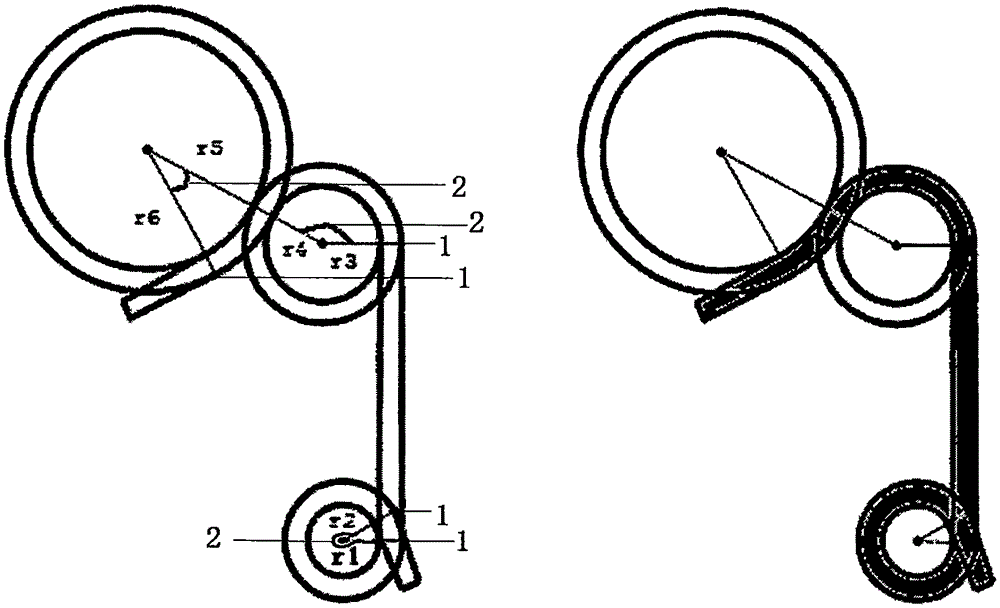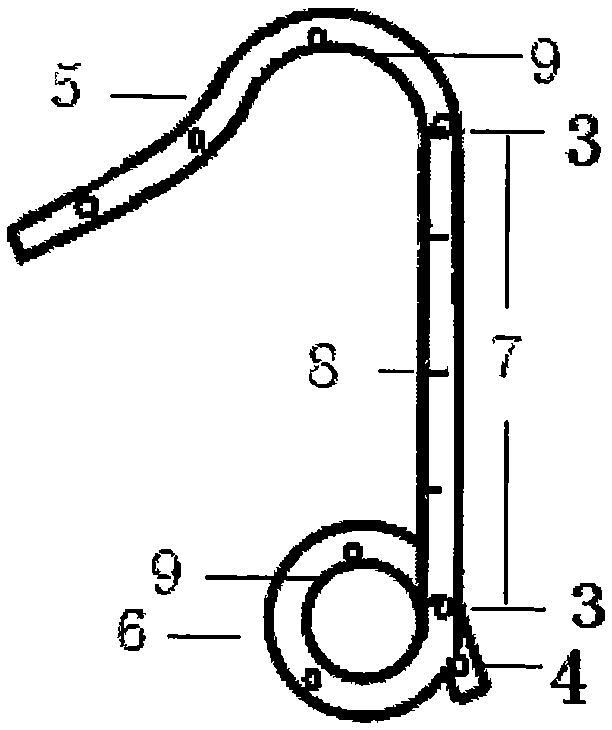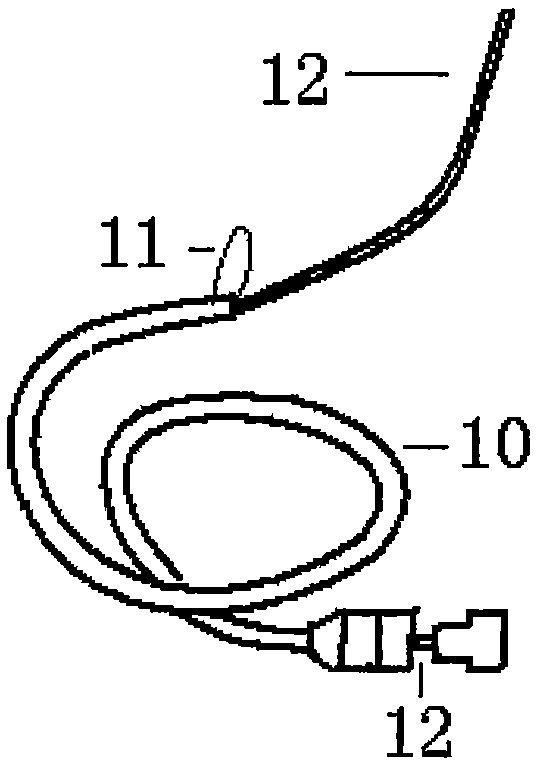Integrated cobra-shaped biliary stent
A cobra, one-piece technology, applied in the field of one-piece cobra-shaped biliary stent, can solve problems such as non-detachment, and achieve the effects of avoiding discomfort, reducing the risk of bile leakage, and avoiding bile loss.
- Summary
- Abstract
- Description
- Claims
- Application Information
AI Technical Summary
Problems solved by technology
Method used
Image
Examples
Embodiment 1
[0029] Stent placement during common bile duct exploration. After taking out the stones under the choledochoscope, insert the guide wire to the distal opening of the common bile duct through the operating hole of the choledochoscope, and then insert the Figure 4 The integrated stent connected with the middle S-shaped structure and the push tube covers the guide wire and pushes it to the distal end of the common bile duct and the duodenum. After the guide wire and pusher are withdrawn, the elastic recovery of the stent is Figure 8 In the SJ shape, the common bile duct incision was closed with primary suture. After the operation, the stent can be pushed off by the chyme in the intestinal lumen or peristalsis after the bile is drained for a period of time.
Embodiment 2
[0031] The stent was retrogradely placed under duodenoscopy. Find the duodenal papilla under the microscope, insert the guide wire into the biliary tract through the operation hole, and then insert the Figure 4 The one-piece biliary stent connected with the middle α-shaped structure and the push tube covers the guide wire and is inserted through the operation hole of the duodenoscope, and the push tube is used to push the stent into the common bile duct. When the drainage section of the stent enters the biliary tract, push out the guide wire and guide tube, the stent returns to Figure 8 The SJ shape in.
Embodiment 3
[0033] The stent was placed through percutaneous transhepatic biliary puncture. Percutaneous transhepatic biliary puncture was performed under B-ultrasound positioning. After the puncture was successful, the guide wire was inserted through the puncture needle hole to the distal end of the bile duct, so that the guide wire passed through the stenosis and entered the duodenum. Withdraw the puncture needle, cover the guide wire with the dilation catheter from the body, push the dilation to the stricture of the liver parenchyma and bile duct, and withdraw the dilation catheter. Will Figure 4 The one-piece biliary stent connected with the middle α-shaped structure and the push tube covers the guide wire and pushes it into the common bile duct and the duodenum. Withdraw the guide wire, guiding tube and pusher, and the stent elastically returns to its JS shape. Since the α end is above the narrow section of the bile duct, and the S-shaped structure is weakly driven by intestinal pe...
PUM
| Property | Measurement | Unit |
|---|---|---|
| Inner arc radius | aaaaa | aaaaa |
| Inner arc radius | aaaaa | aaaaa |
| Arc radius | aaaaa | aaaaa |
Abstract
Description
Claims
Application Information
 Login to View More
Login to View More - R&D
- Intellectual Property
- Life Sciences
- Materials
- Tech Scout
- Unparalleled Data Quality
- Higher Quality Content
- 60% Fewer Hallucinations
Browse by: Latest US Patents, China's latest patents, Technical Efficacy Thesaurus, Application Domain, Technology Topic, Popular Technical Reports.
© 2025 PatSnap. All rights reserved.Legal|Privacy policy|Modern Slavery Act Transparency Statement|Sitemap|About US| Contact US: help@patsnap.com



